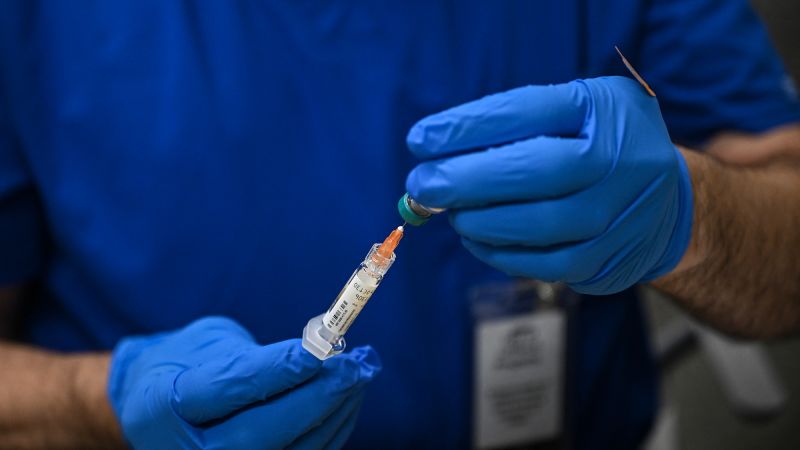The measles outbreak centered in West Texas – one of the largest and deadliest in centuries – has ended, state health officials announced on Monday.
No new cases have been reported in the counties that had previously shown evidence of ongoing transmission in more than 42 days, according to the announcement. An outbreak is considered to be over after this amount of time because it suggests that there two incubation periods have passed – the time it would take to get sick after an exposure – without any transmission.
Texas has confirmed at least 762 cases of measles associated with the outbreak since late January, including nearly 100 hospitalizations. More than two-thirds of the cases were in children, and two school-aged children from Texas died – the first deaths from measles in the United States since 2015.
“I want to highlight the tireless work of the public health professionals across the state who contributed to the containment of one of the most contagious viruses. We arrived at this point through a comprehensive outbreak response that included testing, vaccination, disease monitoring and educating the public about measles through awareness campaigns,” Dr. Jennifer Shuford, commissioner of the Texas Department of State Health Services said in a statement. “I also want to recognize the many health care professionals who identified and treated cases of a virus that most providers had never seen in person before this outbreak.”
Cases linked to the outbreak in Texas have also been reported in New Mexico – where one person died – as well as Oklahoma and possibly Kansas.
New Mexico reported three new cases on Thursday, bringing the state’s total up to 100 cases this year, and the state health department confirmed on Monday that they still consider the outbreak to be ongoing.
“Our agency sees this outbreak as part of the larger regional outbreak that has taken place around the country, including in Texas,” a spokesperson from the New Mexico health department told CNN in an email. “We are still urging New Mexicans to get the measles, mumps, and rubella (MMR) vaccination as a defense against the virus.”

Measles is far more contagious than you think. Dr. Sanjay Gupta explains

Overall, the US has reported more than 1,350 measles cases this year – more than there have been in more than three decades – a record number since measles was declared eliminated in the country in 2000. Outbreak cases in Texas account for more than half of the cases nationwide.
Most outbreak-related cases in Texas were in and around Gaines County, where the measles vaccination rate among kindergartners is one of the lowest in the state. In Texas and nationwide, the vast majority of measles cases have been in people who are unvaccinated; only about 8% of cases this year have been in people who were known to have at least one dose of the measles-mumps-rubella (MMR) vaccine, according to data from the US Centers for Disease Control and Prevention.
Texas health officials say that “the end of this outbreak does not mean the threat of measles is over.”
“Since there are ongoing outbreaks of measles in North America and around the world, it is likely that there will be additional cases of measles this year in Texas,” according to an announcement sent on Monday. “Health care providers should continue to be vigilant and test for measles if their patient has symptoms compatible with the virus.”
At least 41 states have reported measles cases this year, and vaccination coverage among kindergartners dipped again last school year. For the 2024-25 school year, a record share of incoming kindergartners had an exemption for a required vaccine, most often for personal or religious reasons, CDC data shows.

